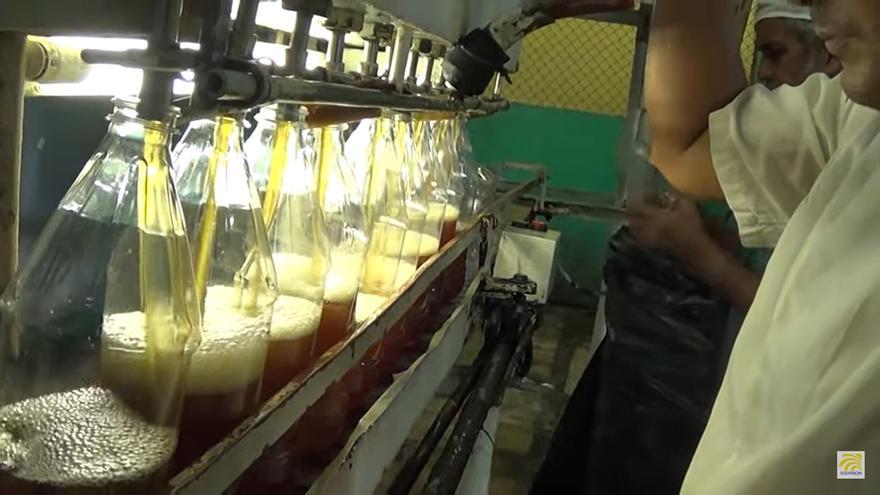
![]() 14ymedio, Havana, 31 August 2023– Cuban children between the ages of seven and 13 have begun to receive syrup instead of the milk and yogurt that the state used to sell on a rationed basis. Although the authorities have been discreet with the announcement of the change, the official press has alluded to the manufacture and sale of the product, which contains several highly dangerous additives.
14ymedio, Havana, 31 August 2023– Cuban children between the ages of seven and 13 have begun to receive syrup instead of the milk and yogurt that the state used to sell on a rationed basis. Although the authorities have been discreet with the announcement of the change, the official press has alluded to the manufacture and sale of the product, which contains several highly dangerous additives.
According to the label, the syrup, which has already begun to be distributed in two-liter bottles throughout the country, is made with substances that are harmful, especially for children. This is the case of dye E-102 (tartrazine), the preservative E-211 (sodium benzoate) and the sweetener E-952 (cyclamate) considered toxic by world health organizations. Acids E-330 and E-338, which are suspect as to their chemical origin, are also added.
The shortage of sugar is one of the problems faced by the production of the liquid on the Island. “In Ciego de Ávila, it has been replaced by neotame,” a powerful sweetener, one of the workers at the vinegar, soft drinks and syrup factory in that province explains to 14ymedio. “Each kilogram of neotame replaces 4.2 tons of refined sugar,” he details.
“Flavors, which are the concentration of syrup without sugar, have also been sold. At home, consumers have to prepare a glass of water with sugar and add the syrup,” he explains. The liquid – which can be strawberry, orange, tangerine or pineapple – contains various substances, in addition to the sweetener, which are “manufactured from essential oils purchased outside of Cuba.”
“Flavors, in the form of a concentration of syrup without sugar, have also been sold. At home, consumers have to prepare a glass of water with sugar and add the syrup”
In Baracoa, Guantánamo, the local soft drink factory packages 3,000 two-liter tubes of syrup daily to “replace” the dairy products that “are no longer distributed” to the children of the province. The workers of the factory, which has occasional blackouts, assure that if there are power cuts “they will have to run the work schedule” and continue the process manually. The authorities, affirm the directors of the factory, “have guaranteed the raw materials,” but the syrup has had to be made with raw sugar in the absence of refined.
The debacle of the basic food basket has been worsening in recent months and has already reached products intended for children. Even in Sancti Spíritus, one of the provinces that had a stable supply of milk, the delivery of the product to those who had medical diets was suspended in March. Instead, they began handing out flavored milk.
A month earlier, the authorities recognized that the supply in the province was “intermittent” due to delays in deliveries from ranchers, who faced a notable drought in addition to the lack of raw materials and funds for their work.
State production of cow’s milk has plummeted in Cuba, with a 95.2% drop between 1989 and 2020, while the private sector showed a growth of 105.9%. However, it is not enough to compensate for the collapse of national plants, which is why milk production in Cuba has fallen 59.3% in the last 21 years when it went from producing more than 1.12 million tons to 455,300.
Translated by Norma Whiting
____________
COLLABORATE WITH OUR WORK: The 14ymedio team is committed to practicing serious journalism that reflects Cuba’s reality in all its depth. Thank you for joining us on this long journey. We invite you to continue supporting us by becoming a member of 14ymedio now. Together we can continue transforming journalism in Cuba.
